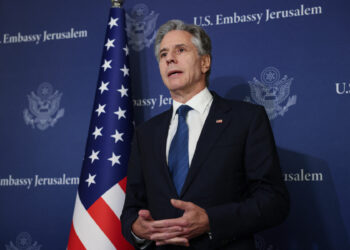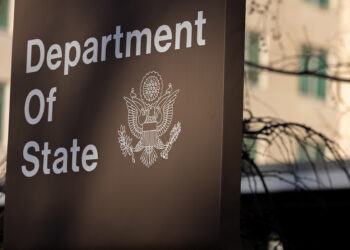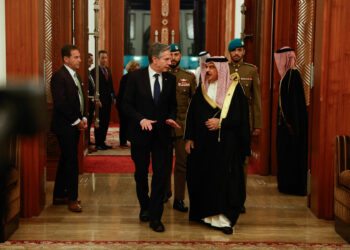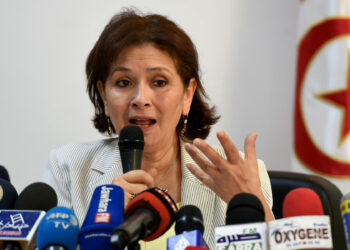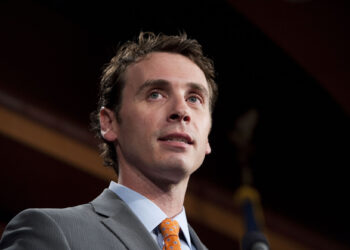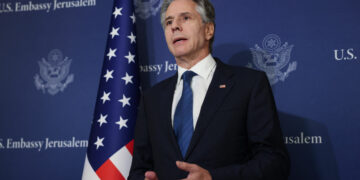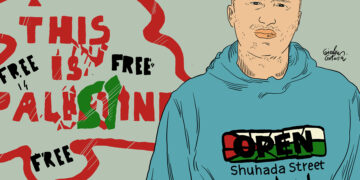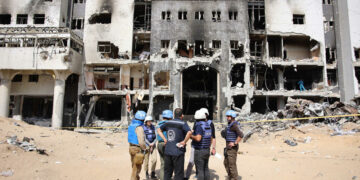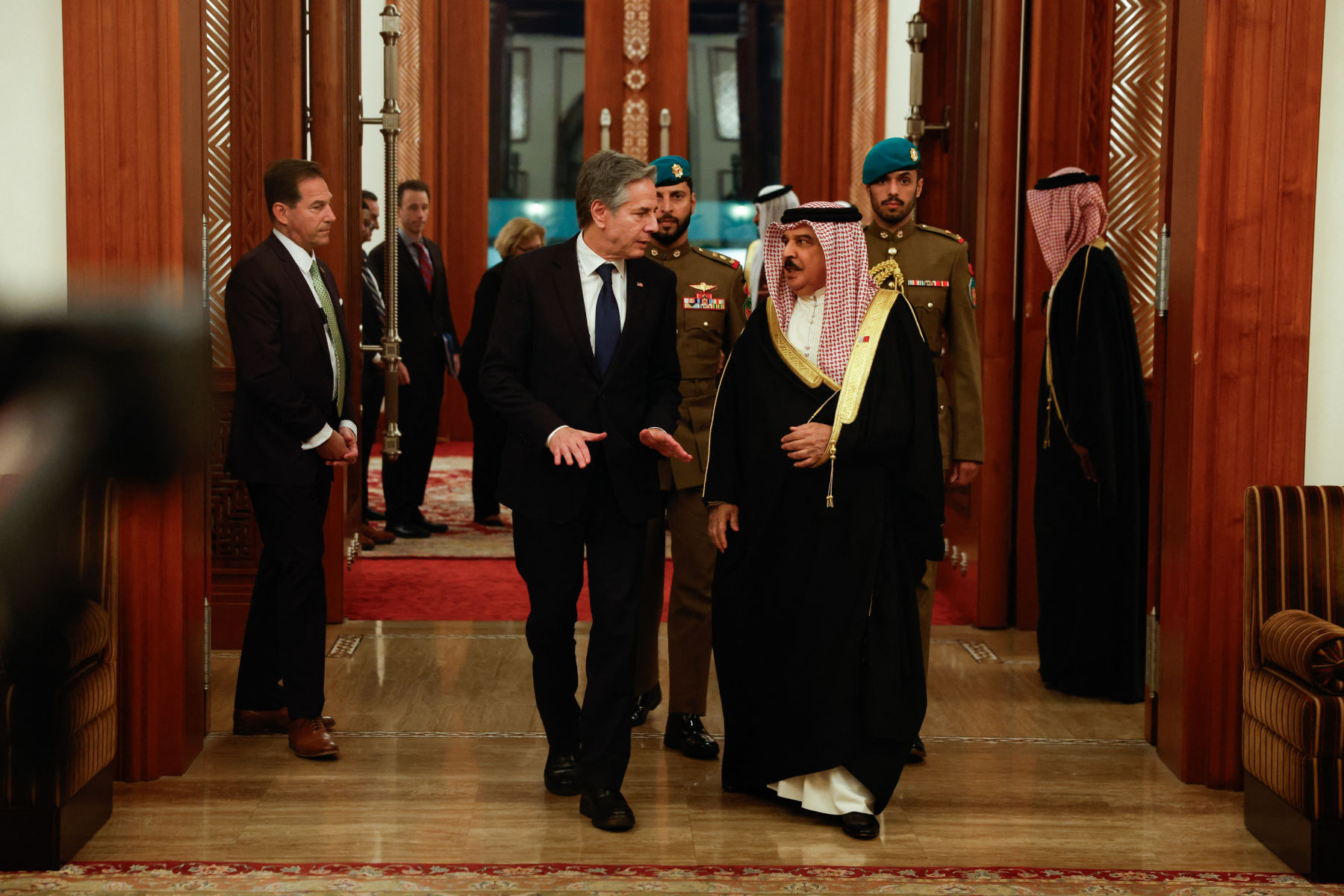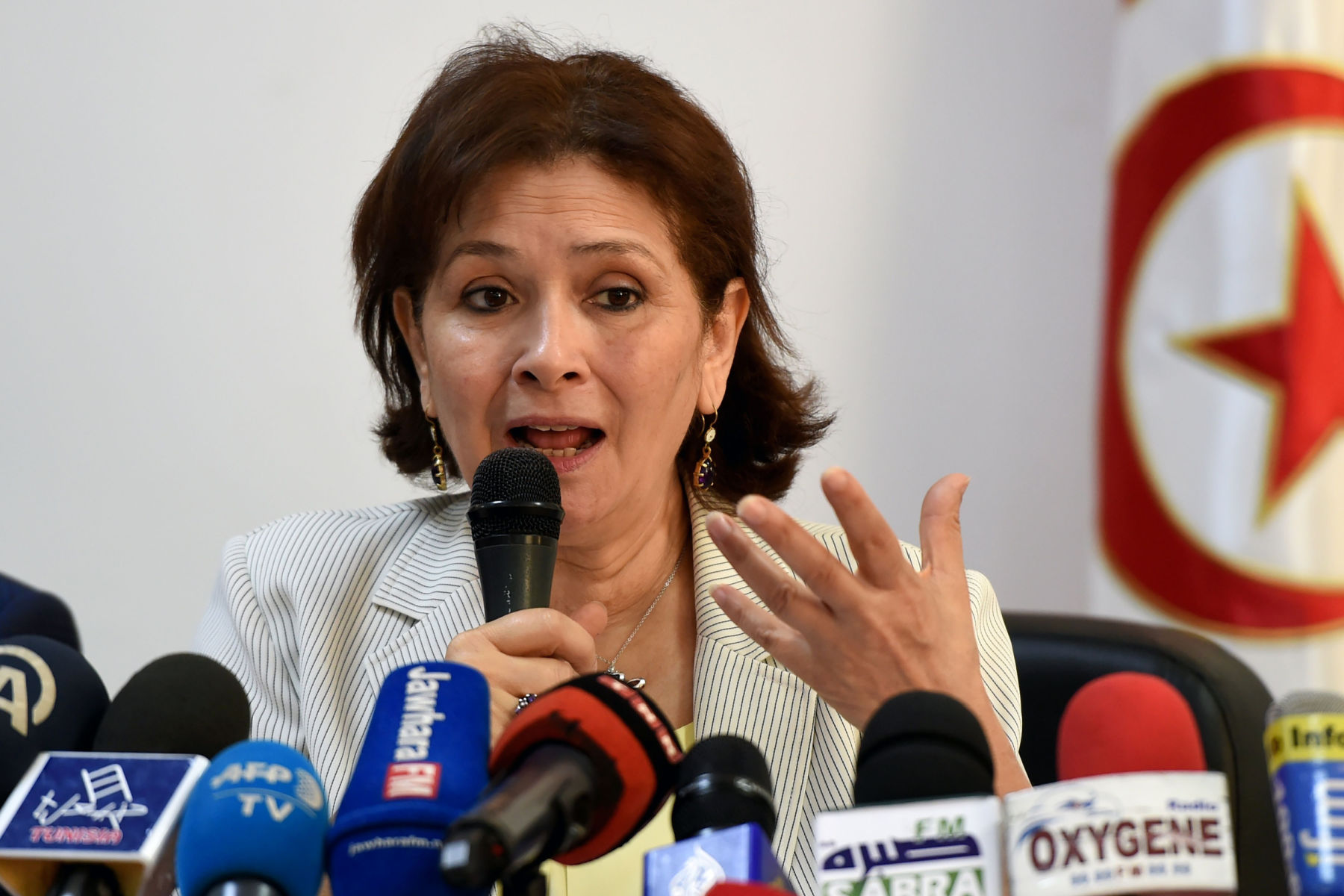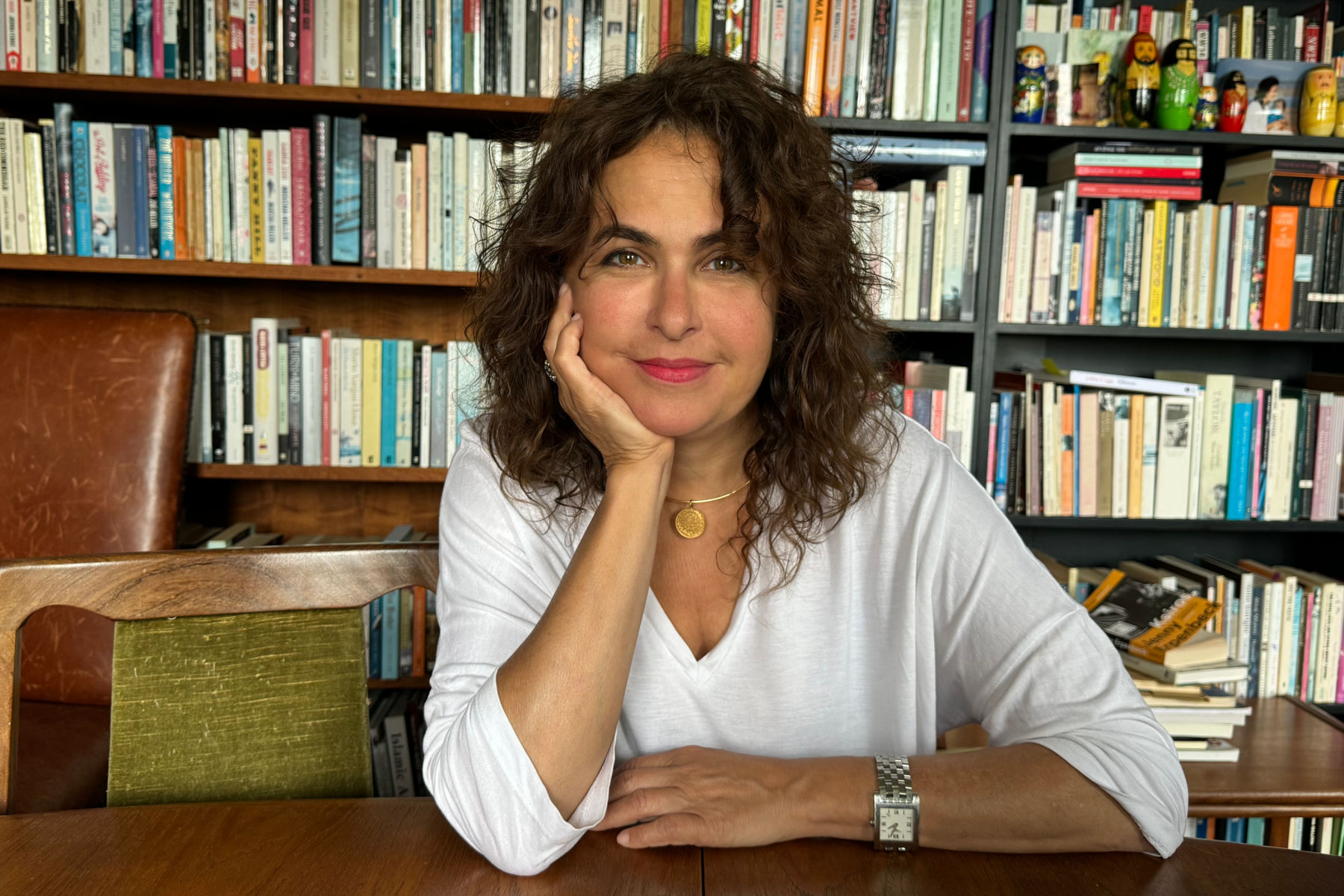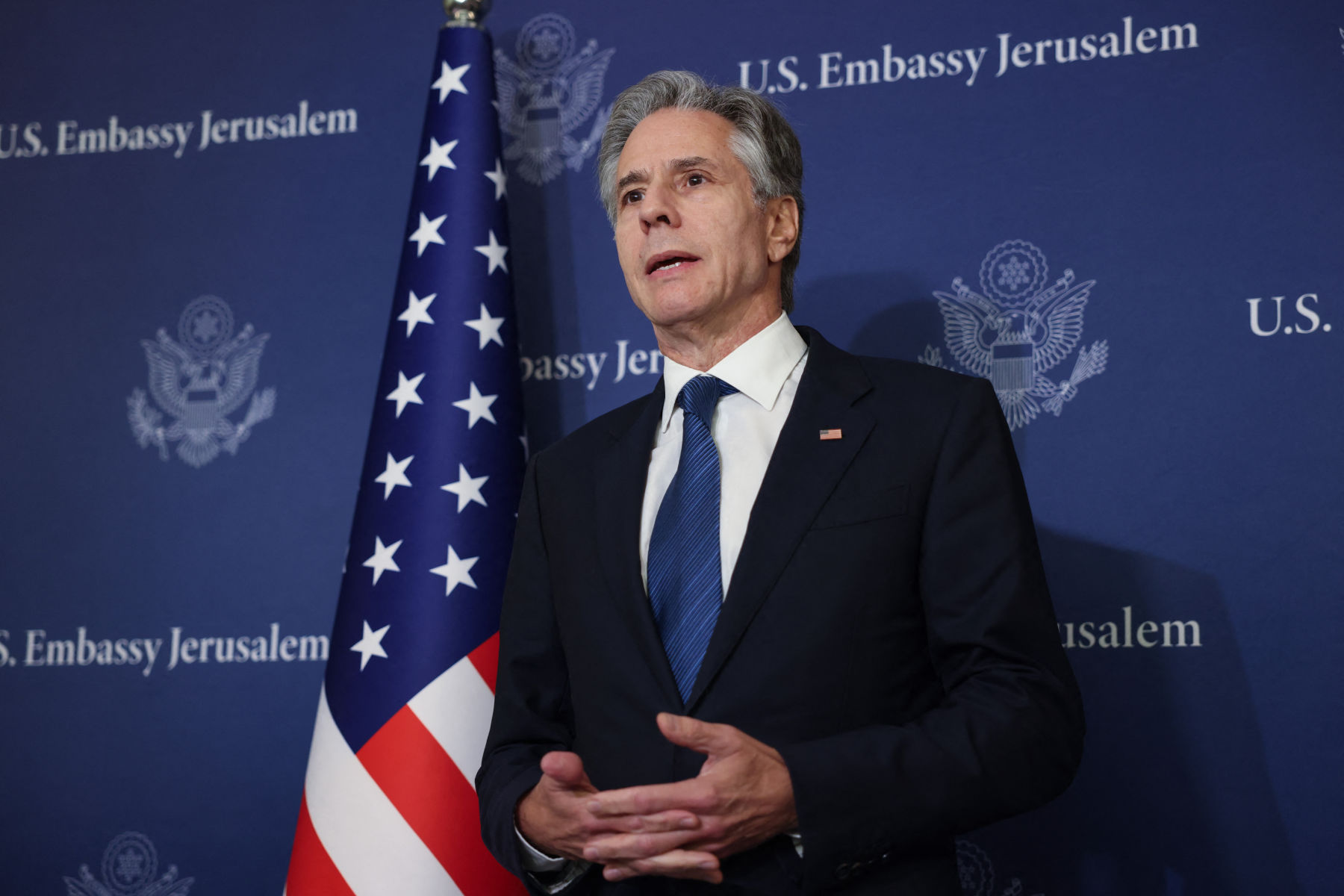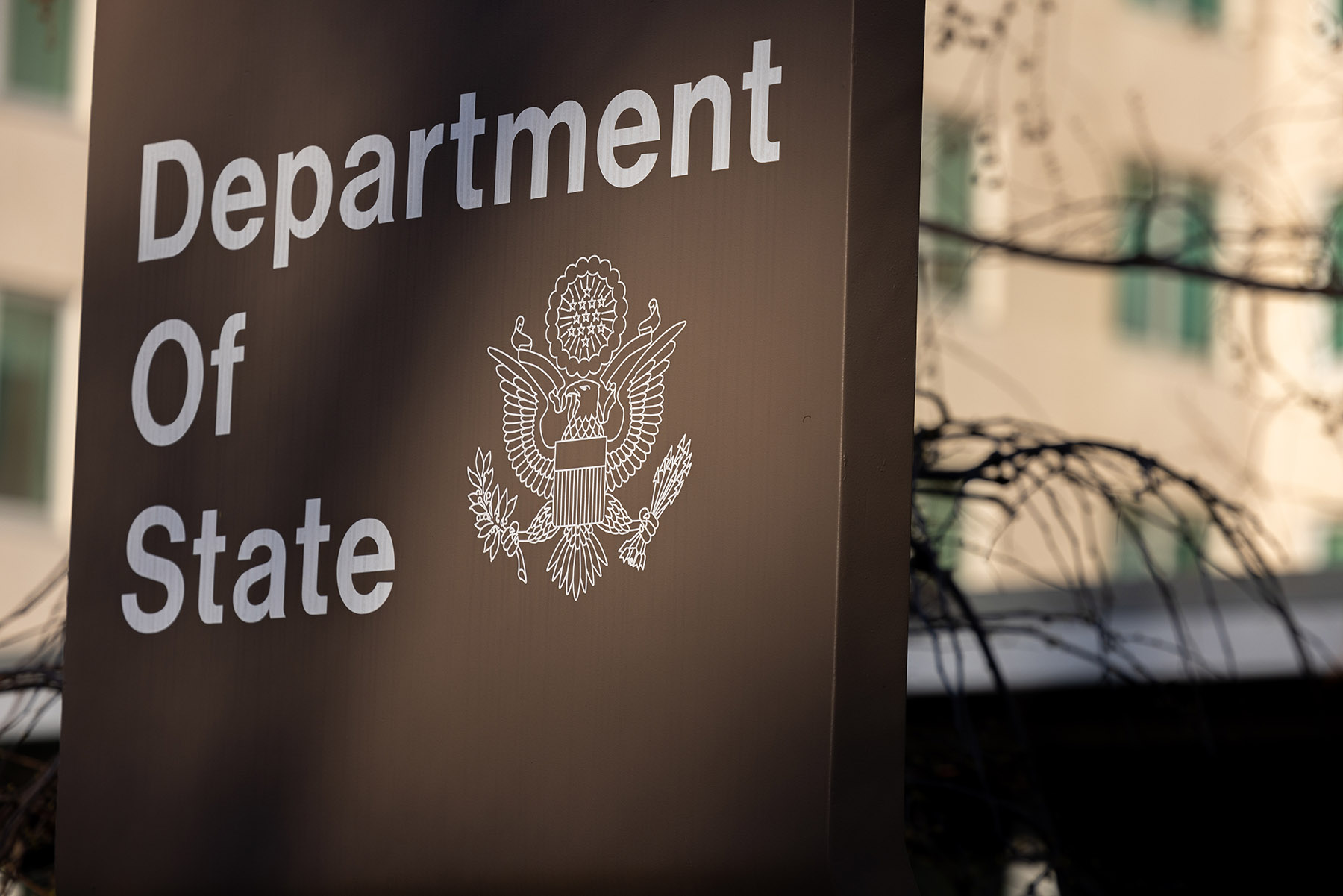ياسين الحاج صالح كاتب سوري ومعارض سياسي، وزميل غير مقيم لدى منظمة الديمقراطية للعالم العربي الآن (DAWN)
في الأيام القليلة الأولى بعد الزلزال الذي دمر جنوب تركيا وشمال غرب سوريا في أوائل فبراير/شباط، كانت هناك فقط مركبات تحمل جثث لاجئين سوريين تعبر الحدود التركية إلى سوريا—وليس مساعدات ومعدات لإنقاذ الناس من أنقاض المباني المنهارة، وليس إمدادات طبية التي هناك حاجة ماسة إليها، وليس ملاجئ مؤقتة لحماية الخائفين والمصابين من البرد القارس. كانت هذه بطبيعة الحال الأيام الأكثر أهمية لجهود البحث والإنقاذ، لكنها تُركت للفرق التي تعاني من نقص الموظفين وغير المجهزة من المستجيبين الأوائل المتطوعين في الدفاع المدني السوري، المعروفين باسم الخوذ البيضاء، لمحاولة إنقاذ الأرواح في منطقة يقطنها حوالي 4.6 مليون شخص، 2.9 مليون منهم نازحون من أجزاء أخرى من سوريا. أنقذت الخوذ البيضاء ما يقرب من 3,000 شخص، ولكن كم عدد الأشخاص الذين كان بالإمكان إنقاذهم إذا تلقوا أي مساعدة دولية في تلك الأيام الأولى الحرجة؟
مع الزلزال الذي وقع قبل شهر، عادت سوريا إلى عناوين الأخبار مرة أخرى لفترة وجيزة. لقد تعامل المجتمع الدولي—إن كان موجودًا أصلًا—على مدى سنوات بشكل سلبي مع الأزمة السورية كما لو كانت كارثة طبيعية، ولم يغير مساره عندما وقعت كارثة حقيقية. بعد ثلاثة أيام من الزلزال، قالت الأمم المتحدة أن قافلة مساعدات عبرت أخيرًا الحدود التركية إلى المنطقة الأكثر تضررًا في شمال غرب سوريا، ما أعطى الانطباع بأنها أتت استجابة للزلزال. كانت تلك كذبة جبانة. كانت القافلة، التي تحتوي على الطعام وأغراض معيشية أخرى، واحدة من القلائل التي ترسلها الأمم المتحدة بانتظام من تركيا إلى شمال غرب سوريا عبر معبر حدودي واحد، لكنها تأخرت بسبب الزلزال. استغرق الأمر ثلاثة أيام أخرى قبل أن يعترف مارتن غريفيث، رئيس المساعدات في الأمم المتحدة، في تغريدة: "لقد خذلنا حتى الآن الناس في شمال غرب سوريا. إنهم يشعرون بالخذلان ولهم الحق في ذلك. ما زلنا نبحث عن مساعدات دولية لم نتحصل عليها بعد". لقد تأخر ذلك بشكل لا يُغتفر. الناس الذين انهارت منازلهم فوق رؤوسهم وربما كانوا على قيد الحياة تحت الأنقاض لقوا حتفهم بينما كان كبير مسؤولي الأمم المتحدة للمساعدات الإنسانية يقلّب يديه.
لم تكن هذه الكارثة لتحدث لولا تطبيع بقية العالم للموت في سوريا لسنوات عديدة. قامت المنظمات الدولية التي تركز على الدول مثل الأمم المتحدة بإضفاء الشرعية على الحكومات حتى عندما تحدث إبادة جماعية مثلما قامت به حكومة الرئيس بشار الأسد. نظام الأسد، الذي دمر المنازل وقتل السوريين بالبراميل المتفجرة والذخائر العنقودية لسنوات بمساعدة مؤيديه الروس والإيرانيين، هو أيضًا القناة الوحيدة التي يمكن من خلالها لهؤلاء الأشخاص الحصول على مساعدات إنسانية. على خلاف الأمم المتحدة، لا تعترف الزلازل بالحدود الوطنية.
نظام الأسد الفاسد والإجرامي، الذي كان مسؤولًا عن أكثر من 90 في المئة من الوفيات المدنية في سوريا منذ عام 2011، وفقًا للشبكة السورية لحقوق الإنسان، تلقى في بعض الأحيان أكثر من 90 في المئة من شحنات المساعدات من الأمم المتحدة ومن العديد من البلدان—تم توجيه معظمها إلى الأراضي التي يسيطر عليها النظام أو استولى عليها لنفسه. في بعض المناطق في سوريا، مثل إدلب التي تسيطر عليها المعارضة في الشمال الغربي، "ذهب 1 في المائة فقط من المساعدات إلى المناطق المحاصرة" خلال سنوات عديدة من الحرب، وفقًا لكارستن ويلاند، الأكاديمي الألماني والدبلوماسي السابق الذي عمل مع ثلاثة من مبعوثي الأمم المتحدة إلى سوريا، ومؤلف كتاب سوريا ومصيدة الحياد. وبحسب ما كتبه ويلاند في كتابه، فإن "إيصال المساعدات عبر الخطوط—أي من الأراضي التي تسيطر عليها الحكومة إلى مناطق المعارضة—كثيرًا ما يتم حظره من قبل السلطات المدعومة من النظام والتي لم تكن مهتمة بالمساعدة في تعزيز الصمود في المناطق التي قصفوها".
وكأن الزلزال كان فرصة مثالية لحملة علاقات عامة، حيث تقوم العديد من الأنظمة العربية—الإمارات العربية المتحدة وسلطنة عُمان ومصر والجزائر ولبنان والأردن، وربما المملكة العربية السعودية قريبًا—الآن بتطبيع علاقاتها مع الأسد بحجة الجانب الإنساني. لكن الحقيقة تكمن في مكان آخر. القاسم المشترك بين هذه الأنظمة هو إضفاء الطابع الأمني على السياسة والعداء للديمقراطية والتمثيل الشعبي. مع انعدام المحاسبة في سوريا الأسد، وعلى الرغم من أنها وكر للجريمة، تتمتع الآن هذه الأنظمة العربية الأخرى بمزيد من الحرية في التعامل مع مواطنيها الساخطين. بطريقة ما، أظهر الأسد لرفاقه المستبدين كيفية القضاء على أي تهديدات شعبية.
في هذه الأثناء، في تركيا المجاورة، تبنى الرئيس رجب طيب أردوغان وحزبه، حزب العدالة والتنمية، الفكرة السامة والعنصرية المتمثلة في جعل اللاجئين السوريين كبش فداء، حيث أن أعينهم على انتخابات يونيو/حزيران. لقد تم بيع التطبيع مع نظام الأسد كخطوة نحو إعادة ملايين اللاجئين في تركيا إلى سوريا، بالإضافة إلى إيجاد حل للتهديد الأمني الذي تمثله قوات حماية الشعب الكردية في شمال سوريا، والتي كانت تاريخيًا الفرع السوري لحزب العمال الكردستاني في تركيا.
هناك نمط من استخدام الكوارث في سوريا لحملات العلاقات العامة. أثبتت مجزرة الأسد الكيماوية في الغوطة في أغسطس/آب 2013 أنها مذبحة مناسبة للغاية، حيث أعدت الولايات المتحدة وروسيا صفقة لنزع سلاح النظام من أسلحته الكيماوية، باعتبارها ثمنًا لعدم معاقبته على خرقه للقانون الدولي وقتل 1,466 شخصًا من الشعب، ما يقرب من ربعهم من الأطفال. اتضح أن نزع السلاح كان مهزلة رخيصة—فقد استخدم النظام الأسلحة الكيميائية عدة مرات بعد الصفقة، بحسب ما أثبتته منظمة حظر الأسلحة الكيميائية في تقرير حديث. في الواقع، كانت الصفقة بمثابة ترخيص للأسد لمواصلة القتل الجماعي.
يعد محو الحدود بين الجريمة والسياسة سمة مميزة لسوريا تحت حكم عائلة الأسد لأكثر من نصف قرن. هذه السنوات الـ 53 هي أكثر من نصف تاريخ سوريا بأكمله ككيان سياسي حديث. يصادف اليوم، 8 مارس/آذار 2023، الذكرى الستين لحكم حزب البعث في البلاد، من خلال الانقلاب العسكري الذي أوصله إلى السلطة (استولى حافظ الأسد على السلطة في انقلابه بعد سنوات قليلة). ما يقرب من 4 أو 5 في المائة فقط من السوريين اليوم هم فوق سن الستين، ما يعني أن كل شخص تقريبًا في البلاد لم يعرف سوى نظام الحزب الواحد، تحت حالة طوارئ—في الغالب تحت حكم الأسرة المجرم من خلال دستور المافيا.
هذا ما لا يفهمه الكثير من الناس، وخاصة مسؤولي الأمم المتحدة: سوريا ليست دولة، ولا حتى ديكتاتورية وحشية فاسدة. إنها مافيا عائلية تحكم البلطجة والمجازر. لم يعلن الأسد حدادًا وطنيًا على ضحايا الزلزال السوري، بينما أعلن أردوغان أسبوع حداد في تركيا.
يتذكر الكثير من السوريين أنه عندما توفي حافظ الأسد عام 2000، تم إعلان الحداد الوطني لمدة 40 يومًا. وكانت هناك سبعة أيام حداد وطني عندما توفي باسل الأسد، الأخ الأكبر لبشار وأول من تم إعداده وريثًا لوالدهم، في حادث سيارة في دمشق عام 1994. يمكن للمرء أن يستنتج بسهولة أنه لا رثاء لحياة السوريين العاديين، أو كما قالت جوديث بتلر، حياة السوريين لا "تستحق الحزن بنفس قدر" حياة عائلة الأسد.
هذه واحدة من الحقائق الأساسية في تاريخ سوريا لأكثر من نصف قرن، تحولت خلالها البلاد من جمهورية إلى ملكية سلالية، أكثر تفردية ووحشية بكثير من الأنظمة الملكية في السعودية وبقية دول الخليج، أو في الأردن والمغرب. يتذكر السوريون أيضًا أنه في يونيو/حزيران 1980، بعد يوم من محاولة اغتيال حافظ الأسد، أرسل شقيقه رفعت فريقًا من القوات الخاصة إلى سجن تدمر، بالقرب من تدمر القديمة، بقيادة صهره، وقتلوا جميع المعتقلين الإسلاميين هناك، ما بين 500 و 1,000 شخص في ذلك الوقت.
ما يعيق الكثير من الناس عن فهم الوضع في سوريا هو أن الوضع لا يُصدق فعلًا. يتجاوز مستوى المعاناة مقياس الإنسان في الحجم والمدة والشدة. هذا ما أطلقت عليه حنة أرندت "صدمة الواقع" و "وحشية الحقائق العارية الصارخة للأشياء كما هي". إنه أمر لا يصدق أن أكثر من 600,000 شخص قُتلوا منذ عام 2011، وما يقرب من 15,000 شخص تعرضوا للتعذيب حتى الموت، وأكثر من 100,000 شخص مختفٍ قسريًا، ووجود 7 ملايين لاجئ في بلدان أخرى—والآن 90 في المائة من السكان المتبقين في سوريا يعيشون تحت خط الفقر. لا يُصدَّق أن مرتكبي جرائم الحرب والجرائم ضد الإنسانية ما زالوا في السلطة بعد كل ما فعلوه، وأن الحكومات تقوم بالتطبيع معهم الآن. لا يُصدق أن الأسد نفسه بدا سعيدًا ومبتسمًا في حلب عندما زار الأنقاض هناك، بعد أربعة أيام فقط من الزلزال.
The international community—if one really exists—has for years passively dealt with the Syrian crisis as if it were a natural disaster, and it didn't change course when a real one struck.
- Yassin al-Haj Saleh
This catastrophe would not have happened were it not for the rest of the world normalizing death in Syria for so many years. State-centered international organizations like the U.N. have legitimized governments even when they are genocidal ones like President Bashar al-Assad's. His regime, which has been destroying homes and killing Syrians with barrel bombs and cluster munitions for years with the help of its Russian and Iranian supporters, is also the only channel through which these same people can get humanitarian aid. Earthquakes do not recognize national borders, but the U.N. does.
Assad's corrupt and criminal regime, which has been responsible of more than 90 percent of civilian deaths in Syria since 2011, according to the Syrian Network for Human Rights, has at times received more than 90 percent of aid deliveries from the U.N. and many countries—most of which it funneled to regime-held territory, or seized for itself. In some areas of Syria, like rebel-held Idlib in the northwest, "only 1 percent of the aid went through to besieged areas" during many years of the war, according to Carsten Wieland, a German academic and former diplomat who worked with three U.N. special envoys for Syria, and the author of Syria and the Neutrality Trap. As Wieland writes in his book, "delivering aid cross line—i.e. from government-held territories to opposition territories—was frequently blocked by regime-backed authorities who had no interest in helping foster resilience in the areas they bombed."
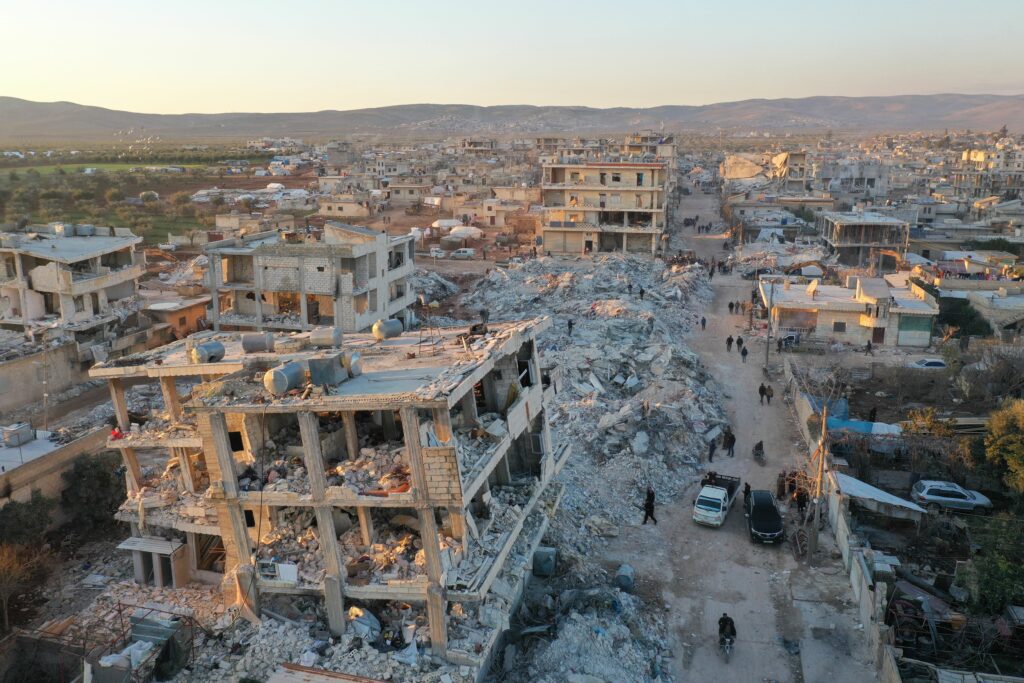
As if the earthquake were the perfect chance for a public relations campaign, many Arab regimes—the United Arab Emirates, Oman, Egypt, Algeria, Lebanon, Jordan, maybe Saudi Arabia soon—are now normalizing their relationships with Assad under the pretext of humanitarianism. Yet the truth lies elsewhere. The common ground between these regimes is securitization of politics and enmity toward democracy and popular representation. With Assad's Syria now a paradise of unaccountability, indeed of crime, these other Arab regimes enjoy more liberty in dealing with their own indignant citizens. In a way, Assad has shown his fellow autocrats how to exterminate any popular threats.
Meanwhile, in neighboring Turkey, President Recep Tayyip Erdogan and his party, the AKP, have adopted the toxic and racist consensus of scapegoating Syrian refugees, with their eyes on June's elections. Normalizing with Assad's regime has been sold as a step toward returning the millions of refugees in Turkey to Syria, as well as a solution to the security threat represented by the Kurdish YPG forces in northern Syria, historically the Syrian branch of the PKK in Turkey.
There is a pattern of using catastrophes in Syria for PR campaigns. Assad's chemical massacre in Ghouta in August 2013 proved to be a very good one, with the U.S. and Russia engineering a deal to disarm the regime of its chemical weapons, as a price for not punishing it for its breach of international law and killing 1,466 of its own people, nearly a quarter of them children. The disarmament, it turned out, was a cheap farce—the regime used chemical weapons several time after the deal, as the Organization for the Prohibition of Chemical Weapons proved in a recent report. In effect, the deal was a license to Assad to go on murdering en masse.
Erasing the boundaries between crime and politics is characteristic of Syria under more than a half century of Assad family rule. Those 53 years are more than half of Syria's entire history as a modern polity. Today, March 8, 2023, marks the 60th anniversary of Ba'ath Party rule in the country, with the military coup that brought it to power (Hafez al-Assad would seize power in his own coup a few years later). Only around 4 or 5 percent of Syrians today are over the age of 60, which means that almost everybody in the country has only known a one-party system, a state of exception—and mostly under delinquent family rule with a mafioso constitution.
What hinders many people from making sense of the situation in Syria is that it really is unbelievable—what Hannah Arendt called the "shock of reality" and "the stark, naked brutality of facts, of things as they are."
- Yassin al-Haj Saleh
This is what many people do not understand, especially U.N. officials: Syria is not a state, not even a corrupt brutal dictatorship. It is a family mafia, ruling trough thuggery and massacres. Assad did not declare any national mourning for the victims of Syria's earthquake; Erdogan announced a week of mourning in Turkey.
Many Syrians remember that when Hafez al-Assad died in 2000, 40 days of national mourning were declared. There were seven days of national mourning when Bassel al-Assad, the eldest brother of Bashar and the first to be groomed as their father's heir, died in a car accident in Damascus in 1994. One can easily conclude that ordinary Syrian lives are unmournable, or as Judith Butler would have it, not "equally grievable" like the lives of the Assads.
This is one of the essential facts of Syria's history for more than half a century, during which the country was reduced from a republic to a dynastic monarchy, more absolute and far more brutal than the monarchies in Saudi Arabia and the rest of the Gulf, or in Jordan and Morocco. Syrians also remember that in June 1980, a day after an attempt on Hafez al-Assad's life, his brother, Rifa'at, sent a commando team to Tadmur prison, near ancient Palmyra, led by his son-in-law, and they killed all the Islamist prisoners there, between 500 and 1,000 at that time.
What hinders many people from making sense of the situation in Syria is that it really is unbelievable. The level of suffering transcends human measure in scale, in duration and in intensity. This is what Hannah Arendt called the "shock of reality" and "the stark, naked brutality of facts, of things as they are." It is unbelievable that more than 600,000 people have been killed since 2011, close to 15,000 tortured to death, more than 100,000 forcibly disappeared, 7 million made refugees in other countries—and now 90 percent of the population left in Syria is under the poverty line. It is unbelievable that the perpetrators of war crimes and crimes against humanity are still in power after all they have done, and that governments are now normalizing with them. It is unbelievable that Assad himself appeared happy and smiling in Aleppo when he finally visited the wreckage there, four days after the earthquake.













